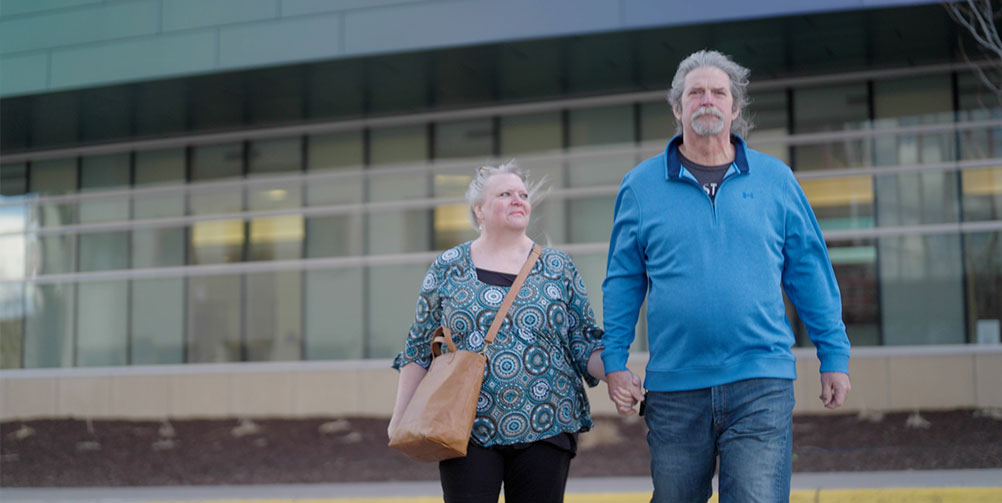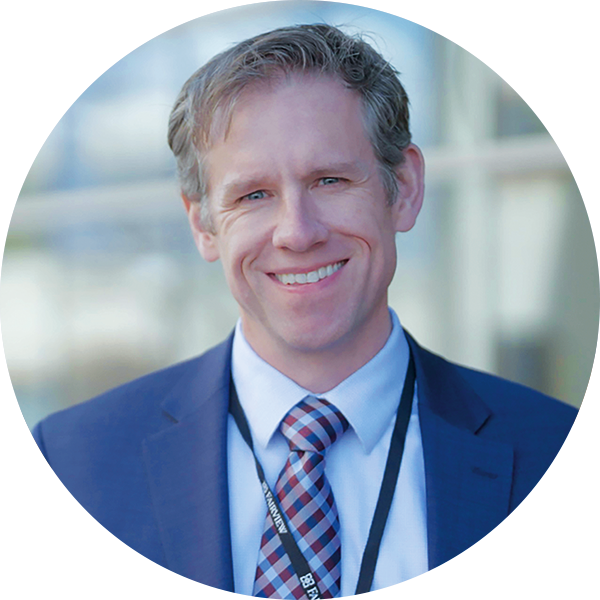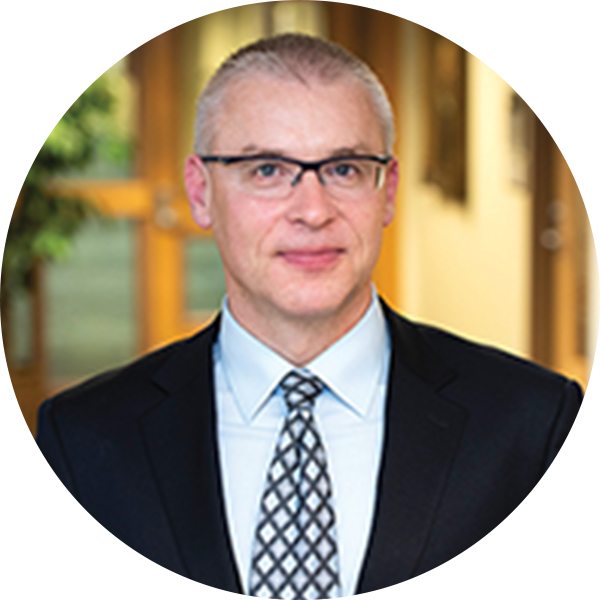help and hope for a scary sleep disorder
Allan Moon has no recollection of his involuntary movement while sleeping that ended up hitting his wife’s jaw.
Same with the dream and the threat that he was up against. But his wife, Barbara, is still shaken by what happened that night.
She wasn’t badly hurt, but Allan was completely unaware of what had happened and horrified when he found out.
It’s an identifiable and treatable disorder
Allan had become a restless sleeper. But this, the Brooklyn Center couple realized, was something new—and frightening.
Barbara went online, found a diagnosis and, then, something even better—one of the foremost experts on REM Sleep Behavior Disorder (RBD) is right in her backyard:
Dr. Michael Howell, a University of Minnesota Physician, researches RBD and Parkinson’s disease. RBD, as well as its ties to Parkinson’s disease, was first identified by researchers at U of M.
“It’s terrifying for people to experience this,” says Dr. Howell, who sees the Moons at M Health Fairview’s Sleep Center in Edina. “You’re not crazy. You’re just like everybody else with one exception: You lost the switch in your brainstem that keeps you from acting out your dreams.”

Nearly all of us don’t sleep as well as we should
RBD is one of many sleep disorders that Dr. Howell and his colleagues treat, everything from restless leg syndrome to sleep apnea and narcolepsy.
In fact, sleep challenges are so common that, on any given day, the performances of 30 percent of adults are impaired because they didn’t sleep well.
Which leads to one of Dr. Howell’s other areas of interest: Helping athletes, including teams at the U of M, improve their sleep and game.
“You can do all the personal training you want,” he says. “But unless you are sleeping well, you’re not going to have those critical split-second reflexes that make the difference between a win and a loss.”
My mattress sits on the floor now
Some of our trouble sleeping can be dealt with by better sleep habits. But, if you’re nodding off during important activities, get help, Dr. Howell advises.
And, when it comes to RBD, don’t wait. It can be dangerous, not just for your loved ones, but for you. Allan has awoken many times with bruises and cuts and no idea how he got them.
Medication, Dr. Howell says, as well as treatment of other conditions that disrupt sleep, is 90 percent effective in resetting the switch that keeps our body in a state of paralysis when we dream.
But, before he gets to that, there’s something the doctor addresses first: making your sleep environment safe.
“Are there weapons in the bedroom?” he asks. “Is there a clock radio (or a lamp) that could be picked up and thrown across the room or at a bed partner?”
It’s not as often, and not as severe
Allan and Barbara are a very playful couple, sometimes even finding humor in their experience.
The medication, along with a CPAP machine for sleep apnea, has made a big difference for Allan.
But he still has occasional episodes.
Barbara starts the night cuddling with him, but moves into her own room just in case.
As for the chance of RBD leading to Parkinson’s, Allan is in the NAPS research study led by Dr. Howell at U of M, which means any symptoms could be identified early.
Says Barbara: “We’re so thankful he’s here for us.”
It’s as easy as AB…ZZZZ
Dr. Michael Howell was on a path to be a neurooncologist.
Then, one fateful day, he wandered into the University of Minnesota Medical School’s Sleep Center.
One, he realized to his astonishment, that there is such a thing as a sleep doctor. And, two, that with so many of us struggling with sleep, he could be of tremendous help.
“People are really quite happy when they’re able to get a good night’s sleep,” he says.
Of course, not all of our troubles with sleep need Dr. Howell’s help. Sometimes, it’s just a matter of better sleep habits that you can easily find online.
With that in mind, we asked him for some quick tips on how to improve our day with a better night’s sleep.
Watch below:
PUTTING DISCOVERY INTO PRACTICE
M Physicians are an extension of the University of Minnesota Medical School. As Medical School faculty, they are always looking for new and better ways to treat patients, whether in the laboratory or the clinic. And through clinical trials, cutting-edge therapies are sometimes available to patients when the standard of care is no longer enough.
What is Academic Medicine?
Most medicine is practiced within what is called “the standard of care.” Simply put, “standard of care” is the treatment that is commonly accepted for treating illness. This is a good thing! It means that patients receive treatments that are known to be generally effective and reliable.
The goal of academic medicine is to treat patients while looking for better therapies. It takes the toughest problems from the clinic and looks for solutions in our research. Many of our physicians — leaders in their fields — are also scientists.
When a patient faces an illness that requires treatment that exceeds the standard of care, academic medicine can provide access to newer therapies.




